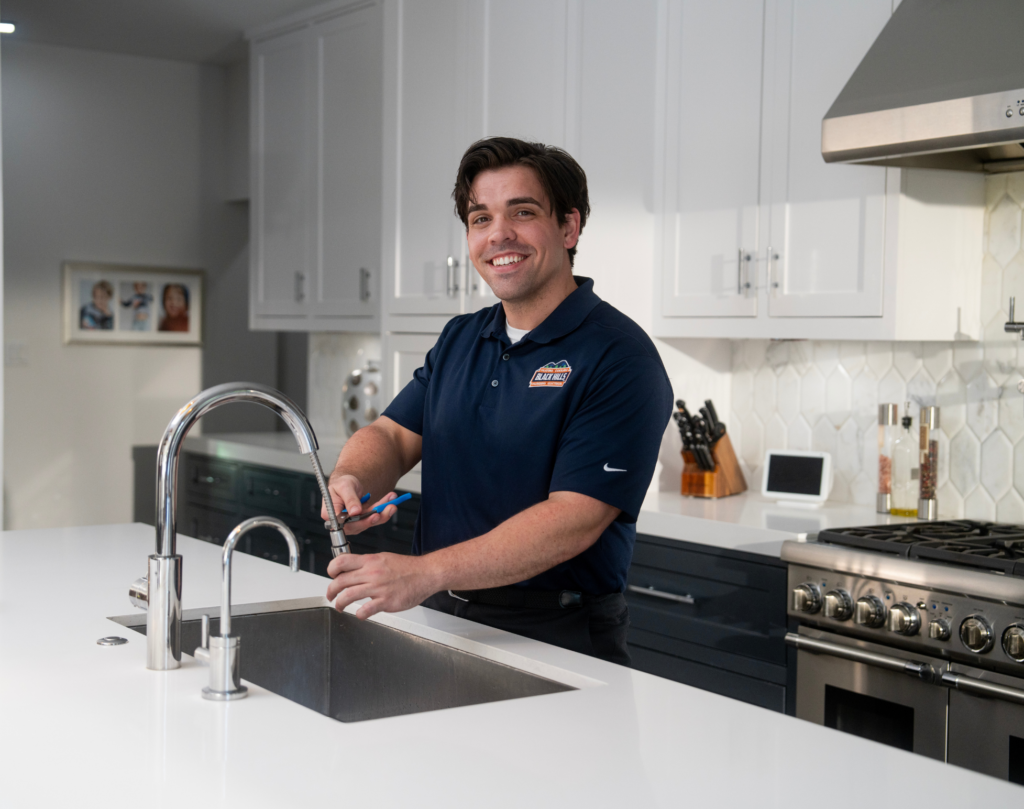Tips for Preventing Clogged Drains in Your Kitchen
Clogged kitchen drains are among the most common and frustrating plumbing issues homeowners face. From messy backups to unexpected repair bills, blockages can disrupt your day and damage your plumbing system. Prevention is key, not only does it save time and money, but it also helps maintain a clean, functional kitchen.
From slow-draining sinks to surprise water backups during dinner prep, kitchen drain clogs can throw off your entire routine. Left unchecked, they may also lead to unsanitary conditions or even damage to cabinets and flooring.
In this post, you’ll learn about the most common causes of kitchen drain clogs, practical ways to prevent them, and when it’s time to call in a professional. If you’re dealing with slow drainage or unpleasant odors, reliable plumbing Olympia services are available to help.
Common Causes of Clogged Kitchen Drains
Even with regular care, kitchen drains are vulnerable to build up and blockages. Most clogs develop gradually, caused by everyday habits and materials that don’t belong in your plumbing system. Food scraps, grease, and even seemingly harmless substances can create major headaches when allowed to accumulate.
Here are some of the top causes of clogged drains:
- Grease and oil buildup
- Coffee grounds
- Eggshells and fibrous vegetables
- Pasta and rice expanding with water
- Large food scraps
- Soap and detergent residue
- Foreign objects (utensils, wrappers, etc.)
These materials may seem minor at first, but over time they create thick deposits inside the pipes. Without intervention, these clogs can lead to a full blockage or even damage to your plumbing.
Smart & Simple Tips to Prevent Kitchen Drain Clogs
It’s easy to overlook how small habits can lead to big plumbing problems. Many clogs don’t start with one bad move but rather a buildup of routine misuse. By staying consistent with these simple tips, you can avoid costly repairs and keep your plumbing running smoothly year-round.
Preventing clogs is much easier than clearing them. A few consistent habits can significantly reduce the risk of buildup and extend the life of your plumbing. These practical tips are easy to follow and make a noticeable difference over time.
- Scrape plates into the trash before rinsing. Avoid letting food go down the drain.
- Use a sink strainer. Catch food bits and empty it daily.
- Avoid pouring grease or oil. Use a container to collect and dispose of it in the trash.
- Run cold water during and after using the garbage disposal. This helps food waste move smoothly through the pipes.
- Grind small food scraps only. Don’t overload the disposal with large quantities at once.
- Avoid putting fibrous food in the disposal. No celery, corn husks, banana peels, etc.
- Flush drains weekly with hot water. Prevent buildup from fats and soap scum.
- Try a baking soda and vinegar flush once a month. A natural way to break up early clogs.
- Keep coffee grounds out of the sink. Dispose of them in the trash or compost bin.
- Educate family members. Everyone should know what’s safe (and not safe) to go down the drain.
When DIY Isn’t Enough: Call a Plumbing Professional
Despite your best efforts, some clogs require professional attention. Over time, buildup in the pipes or deeper problems in the plumbing system can cause recurring issues that basic cleaning can’t resolve.
Here are signs that it’s time to call a plumber:
- Standing water in the sink
- Slow drainage throughout multiple fixtures
- Foul odors coming from the drain
- Gurgling or bubbling noises when draining water
These harsh chemicals may offer temporary relief, but over time they can corrode pipes, especially if used repeatedly. What starts as a quick fix can shorten the lifespan of your plumbing system and lead to expensive repairs.
A licensed plumber can assess your entire system, locate stubborn clogs, and check for serious issues like tree root intrusion or damaged pipes. If you’re noticing signs of a deeper issue, plumbing professionals in Olympia are ready to help with safe, effective solutions.
A Clog-Free Kitchen Starts with Prevention
Preventing kitchen drain clogs doesn’t require expensive tools or drastic measures. With simple habits like using strainers, disposing of grease properly, and maintaining your garbage disposal, you can avoid most common blockages. And if a clog does occur, knowing when to call a trusted plumber can prevent a small issue from turning into a major repair.
Even if your drains seem to be working fine now, buildup can happen slowly and silently. A professional inspection can help identify minor issues before they turn into full clogs. It’s one of the best ways to protect your kitchen and avoid emergency plumbing calls later.
Need help with a stubborn kitchen clog or want a full inspection of your plumbing system? Contact Black Hills today for trusted, local solutions in Olympia and beyond.

